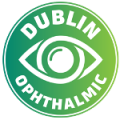Cataract Surgery
Cataract surgery is the commonest and arguably most successful surgical procedure.
Cataracts usually develop over a long period, causing progressive yet gradual deterioration of vision. If a cataract is left untreated, the lens will eventually become so clouded that daily activities become extremely difficult.
When the natural lens in your eyes become hazy, vision may be restored simply with a replacement which is a permanent, bespoke artificial lens placed into the same position. Surgery should be considered when poor vision interferes with daily activities. Surgery is the only effective way to remove the cloudy lens.
Cataracts can be removed at any stage and the timing rests with you.
The vast majority of operations are done simply using a form of gentle sedation administered by an expert anaesthetist and the eye is miraculously numbed simply with eyedrops. Some people may request or be recommended a general anaesthetic.
There have been many technological advances in recent years such as the use of small incisions, foldable intraocular lenses (IOLs), toric and multifocal artificial lenses and effective prevention of infection.
The eye is measured preoperatively in order to calculate the correct strength of the IOL.
At your initial consultation, your surgeon will discuss the subject in some depth, what will happen before, during and after your procedure, and any specifics pertaining to you.
This procedure has been significantly refined and at the Beacon Hospital should take no longer than 10 minutes in most cases. While intricate, the surgeon at Dublin Ophthalmic is assisted by the best available instrumentation and microscope and utilizes the gentlest technique(a vertical chop procedure) described to perform this procedure. Other surgeons might maintain a more old-fashioned technique of grooving the lens repeatedly and then slowly removing the pieces but this may account for prolonged operative times and delayed healing.

How to contact us:
Reception at Suite 25
Beacon Consultants Clinic
Sandyford, Dublin 18
Phone: 086 061 5788
Email: info@dublinophthalmic.ie
